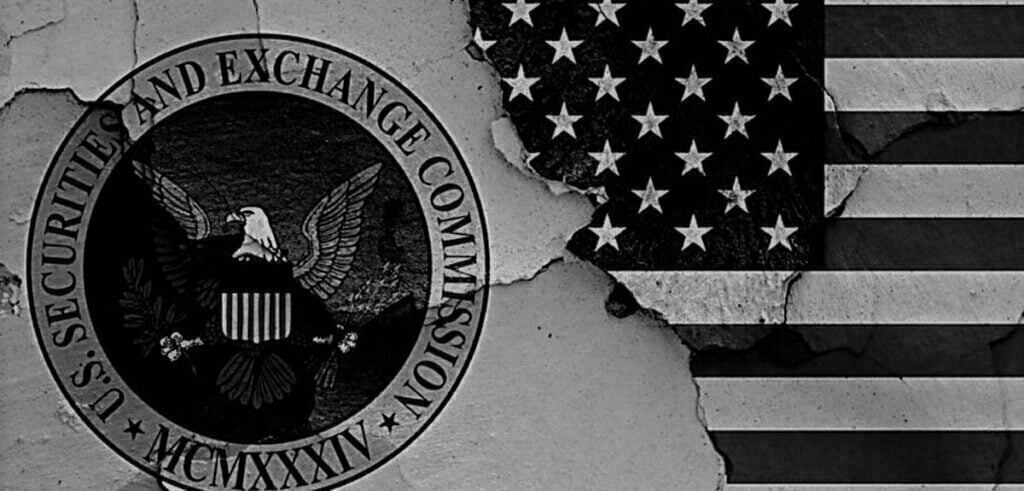In an era where regulators are enabled to become more emboldened, the Securities and Exchange Commission (SEC) has become the next Ministry of Truth and is attempting to assert its power over non-public companies which are currently unregulated.
This draconian measure should be feared by all those who value a free market and want to pay less than $5 for a dozen eggs in the future. I mention eggs because based on the response of farmers to the SEC proposal there is an existential threat to them as an ongoing concern.
In an Orwellian move that would even make Huxley grimace, the once benign SEC wants to reign supreme over not only publically traded companies but any and all companies that do business with them. The subject is mundane and esoteric to most but has the potential to increase prices on many commodities that you buy and put many hard-working small businesses out of business.
Family-owned egg farms could be disqualified from doing business with larger companies, and the rule could thus “push small and medium-sized farmers out of business,” the National Association of Egg Farmers said in its letter to the SEC.
To understand the overreach into private companies via the SEC we need to look at the genesis of the issue, which is something called Scope 3 emissions. Greenhouse gas emissions are categorized into three groups or ‘Scopes’ by the most widely used international accounting tool, the Greenhouse Gas (GHG) Protocol. Scope 1 covers direct emissions from owned or controlled sources. Scope 2 covers indirect emissions from the generation of purchased electricity, steam, heating, and cooling consumed by the reporting company. Scope 3 includes all other indirect emissions that occur in a company’s value chain.
Basically, any company that does business with a public company will have to provide climate data to that company, which will then provide it to the SEC.
According to Kimberly Henderson, SEC compliance analyst, “The rule would also require Scope 3 disclosures if they are material or if the filer has a target. Scope 3 are upstream and downstream emissions along the company’s entire value chain. The emissions reporting would need to be in absolute terms and in terms of intensity, both per unit of revenue, that is, greenhouse gases per dollar in sales and per unit of product, such as emissions per car manufactured.”
If you wanted to put a stranglehold on small businesses you couldn’t ask for a better regulation. As one would hope, there are those who are suspect of climate risk and are questioning the SEC’s proposed mandate. According to the National Federation of Independent Business, “Small and independent businesses cannot afford the experts, accountants, and lawyers needed to comply with complex government reporting regimes.”
In what is usually a lethargic commenting process, the SEC however received over 3,400 letters on its rule from businesses, trade associations, politicians, churches, and citizens in general. This is significant because the SEC will usually consider such feedback when deliberating on its decision.
In practical application, what can one expect to happen if the proposed rule is mandated? Probably the opposite of what you would expect. Large publically traded restaurant chains could end up ditching local farmers and small suppliers in favor of other larger companies who have the resources to comply with the new heavy regulation.
So you go from farm to table to the warehouse to table. While you might be thinking that local gas station owners are becoming richer each day as oil and gas prices rise, they are not.
In fact, the SEC proposal could significantly hinder their operations going forward. They are essentially convenience stores that operate on low margins that happen to sell gas. Like the restaurant industry, compliance would be costly and difficult.
This is not the first time the SEC has attempted a power grab, and most assuredly will not be its last. An unbelievable rule mandated by the 2010 Dodd-Frank Act and overseen by the SEC declared that home manufacturers, who have on average under 5 employees, state that their minerals are “conflict-free,” meaning that at the time they were not tied to the civil war underway in the Congo. No my friends, I am not making that up.
To give you a “for instance” of the nuance and vagueness of the proposal, a Gibson Dunn analysis suggests that in many cases a company action of non-measurable consequence can trigger a disclosure requirement under the rule. Detailed disclosures would be required if a company “uses” a scenario analysis, “maintains” an internal carbon price, “has set” any climate-related target or goal, or “has adopted” a transition plan.
Good luck with keeping up with that. It’s no wonder the SEC expects costs of compliance to increase by over half a million dollars for these publicly traded companies. In a fitting response to the proposal, the National Federation of Independent Business pleaded for regulatory restraint and simply stated, “Please keep small and independent businesses in your mind and out of your grasp.”
Let’s hope the SEC took the time to read the comment.
